CSDE Welcomes 2 New External Research Affiliates in Winter Quarter 2025
|
CSDE is pleased to introduce two of our new External Research Affiliates! Michele Cadigan, (Presidential Postdoctoral Fellow, Arizona State University) utilizes mixed methodologies to examine intersectional inequality at the intersection of the criminal legal system and economic markets, with a primary focus on cannabis legalization and a secondary focus on monetary sanctions. Salene Jones (Associate Professor, Fred Hutchinson Cancer Center) is a psychologist whose research focuses on cancer care delivery, the patient experience and quality of life. She is particularly interested in psychometrics, which is the development of valid and reliable questionnaires for patient-reported outcomes to assess pain, depression, anxiety and other facets of quality of life. Learn more about each affiliate in the full story!
(read more) |
 |
Flaxman to Present at CSSS Seminar on 2/19
|
On Wednesday February 19th at 12:30pm, CSDE Affiliate Abraham Flaxman (Dept. of Health Metrics Sciences) will give a seminar titled “When AI Outlistens Experts: Large Language Models as Tools for Verbal Autopsy Analysis.”
Verbal autopsy (VA) serves as a crucial tool for understanding causes of death in regions lacking comprehensive vital registration systems. However, current methods for analyzing VA data face significant limitations: physician review is resource-intensive and potentially biased, while existing computational approaches struggle with the complexity of death classification.
(read more) |
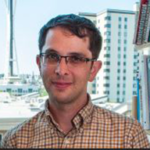 |
Keith and Martin Awarded Leadership Prize for Publication on Social Determinants of Hypertension Among Mothers-to-Be
|
Hypertension has been identified as a leading cause of maternal morbidity and mortality in the United States, and one that disproportionately impacts Black mothers. In a recent paper that was awarded the Charles E. Gibbs Leadership Prize for the best paper published in Women's Health Issues in 2024, CSDE Affiliates Monica Keith (Vanderbilt University) and Melanie Martin (Anthropology) demonstrate the impacts of social environments on hypertensive risk as measured by allostatic load among pregnant women. Study findings show that measures of social environments such as household income and partnered status were stronger predictors of hypertensive risk than behavioral factors, with strongest effects observed for Black women. Read the full study here.
(read more) |
 |
Curran, Gakidou, Yang and Colleagues awarded NIA Grant for Climate, Aging, and Health Virtual Center
|
CSDE Affiliates Sara Curran and Emmanuela Gakidou with CSDE Scientist June Yang are part of a large multi-institutional team awarded an NIA P60 grant for the virtual Center on Aging, Climate, and Health (CACHE). The initiative is led by the University of Colorado (Hunter, PI) and the City University of New York (Balk, PI) and is joined by the University of Minnesota (Grace, PI), and El Collegio de Mexico (Sanchez, PI). The virtual center facilitates research and fosters collaboration among a wide-range of researchers working at the nexus of aging, health and climate change through targeted interdisciplinary training, information sharing, and investments in research support. Learn more about CACHE here.
(read more) |
 |
Raker Co-Authors Research Brief on Estimating Population Burdens of Environmental Evacuations
|
Although many governments commonly issue emergency evacuation notices in response to environmental disasters, researchers have not developed measures to systematically evaluate and compare the population burdens of these notices. In a recent research brief in Population Research and Policy Review, CSDE External Affiliate Ethan Raker and co-author Xueqing Zhang introduce the concept of measurement in “person-days” under an emergency order. Person-time measures of emergency orders reveal the population burden of environmental hazards, can be applied broadly to cases like air quality alerts or heat warnings, and help demographers study environmental impacts across locations. Read the full brief here.
(read more) |
 |
|
|
*New* CSDE Computational Demography Working Group (CDWG) Hosts Kivan Polimis on Using Data-Driven Analysis of Retractions to Enhance Transparency and Accountability (02/19/2025)
|
On Wednesday 2/19 from 9-10 AM, CDWG will host Dr. Kivan Polimis for a research talk. Kivan Polimis is a Data Scientist at Karna and a lecturer in the Sociology Department at the University of Washington. Dr. Polimis is a computational demographer specializing in the use of non-traditional data such as social media to analyze population dynamics, with a focus on migration patterns. Dr. Polimis’ research leverages statistical frameworks that fuse novel and traditional demographic data to explore how digital interactions reflect demographic trends.
(read more)
|
 |
Data Access With Federal Administration’s Transition
|
The challenges of data access during federal administrative transitions can happen every four years. What follows are some resources that might be useful. We will continue to update this blog post with new information. If you have any links that could be helpful, please send csde@uw.edu your updated and helpful information. We know that what follows may not provide you with the exact data you need, so let us know what you need and what’s missing and we can try to find where it is located.
(read more) |
 |
Cultural Anthropology Methods Program (CAMP) Launched
|
In collaboration with six global partners, Methods4All recently announced the launch of a Cultural Anthropology Methods Program (CAMP) International Curriculum & Community of Practice. Spanning 15 methods modules, there are 50 free YouTube methods lectures that offer the best methodological guidance our nationally-selected Distinguished Teaching Faculty has to offer. All lectures are available in English and captioned in 9 languages. Learn more here.
(read more) |
 |
NWFSRDC News and Highlights Corner – Explore Our New Website!
|
CSDE is excited to announce the launch of the new Northwest Federal Statistical Research Data Center (NWFSRDC) website! Our revamped platform features a user-friendly interface and offers comprehensive resources to learn about this unique data resource at the UW. The NWFSRDC provides physical and/or virtual access to non-public data collected by U.S. government agencies. Over 200 microdata resources from 16 government agencies are accessible through the NWFSRDC.
(read more) |
 |
ASPIRE Equitable Exchange Virtual Discussion Series
|
A new NSF-funded project, Active Societal Participation in Research and Education (ASPIRE), which seeks to advance equitable, community-based approaches to geoscience (including earth, ocean, atmosphere, marine, polar) practiced within academic settings. There are many activities within ASPIRE, the first of which is our Equitable Exchange Virtual Discussion Series. This interactive webinar series (7 sessions, we encourage you to attend all!) is for anyone curious about community engagement, through to those looking for a space to discuss their deep experience navigating co-produced research.
(read more)
|
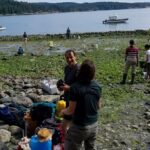 |
Statistical Horizons Course on How to Choose a Model for Longitudinal Data (2/20 – 2/22/25)
|
With a seemingly endless range of possible models to analyze longitudinal data, how do you select the best one? This seminar from Statistical Horizons (taught by Kenneth A. Bollen) will address that question, providing you with practical tools to evaluate and select the most suitable longitudinal model. Learn more and access sample course materials here.
(read more) |
 |
*New* Ohio Population Consortium Announces Webinars on Fertility Goals (2/27 and 3/24/25)
|
Over the course of the twentieth century, fertility intentions, desires, preferences, and attitudes (fertility “goals”) became key constructs for demographic research on fertility. The increasing focus in the past two decades on reproductive autonomy and reproductive justice highlights women’s (and occasionally men’s) own desires and preferences as the foundational concern for policy and programmatic activity. Even as fertility goals have gained theoretical and policy importance, many questions remain around conceptualization and measurement of these constructs.
(read more) |
 |
*New* Social Science Research Council Virtual Lecture by Lawrence Katz (2/27/25)
|
On February 27th, Professor Lawrence Katz (Harvard University) will present a virtual lecture hosted by the Social Science Research Council entitled “Neighborhood Effects, Housing Mobility, and Place-Based Policies: Evidence from Experiments and Quasi-Experiments.” This lecture will cover his work on three landmark projects: Moving to Opportunity, enabling residents of public housing to move to lower-poverty neighborhoods; Creating Moves to Opportunity, providing additional support to families considering leaving high-poverty neighborhoods; and HOPE VI revitalization grants, investing in mixed-income developments in neighborhoods with distressed public housing.
(read more) |
 |
ICPSR Summer Scholarships in Quantitative Methods Now Available (2/28/25)
| Scholarships for the 2025 Inter-university Consortium for Political and Social Research (ICPSR) Summer Program are now open! These scholarships cover one of our General Sessions, where you can curate your own schedule of methods training to fit what you need for your research and goals.
View the full list of scholarships that we offer, along with scholarships offered in partnership with other organizations.
(read more) |
 |
*New* Gateway Exposome Coordinating Center (GECC) Offers Pilot Funding (3/1/25)
|
The new, NIA-funded GECC has pilot project funding available. The GECC facilitates research on the environmental determinants of Alzheimer’s Disease (AD) and AD-Related Dementials (ADRD) risk, resilience, and disparities, and emphasizes six environmental domains including climate and the physical environment. The application deadline is March 1.
(read more) |
 |
*New* ASA Sociology of Population Section Student Paper Award (3/1/25)
|
The American Sociological Association’s Sociology of Population section is accepting nominations for the best student paper in the sociology of population. This award consists of a certificate and $500 award. The paper must use a sociological perspective to address an issue of relevance to contemporary demography, broadly construed; purely technical papers are not eligible. The paper can be published or unpublished and should be article-length (approximately 40 pages including tables and figures). Papers can be sole-authored or have multiple student authors.
(read more) |
 |
Penn State Population Research Institute Invites External Fellow Applicants (3/5/25)
|
The Population Research Institute (PRI) recently announced a call for applications to the 2025-2027 External Fellows Program. The PRI will welcome a second cohort of the External Fellows grant writing program to PRI’s University Park campus in May 2025. External Fellows will receive support from PRI to prepare a grant for submission to the National Institute of Health's Eunice Kennedy Shriver National Institute of Child Health and Human Development. The External Fellows will come to Penn State's campus for four days of intensive grant-writing training, networking, and mentorship at the start of the first year of the program, May 13-16, 2025.
External Fellows will become external affiliates of PRI for two years (with possibility of continuing affiliation), will join the PRI grant writing group, and will be welcome to participate in all of PRI's activities, including our Brown Bag series, our grant writing program events, and our working groups, such as the Migration group, the Population Health group, the Gender and Family Demography group, or the Climate Change and Health group. The External Fellows program is a two-year program open to Early Stage Investigator (ESI) population scientists.
(read more)
|
 |
Royalty Research Fund Invites Proposals (3/3/25)
|
The Office of Research invites applications for the next round of the Royalty Research Fund (RRF) grant program. Proposals are due to RRF Monday, March 3, 2025 by 5:00 PM. Departments and Colleges/Schools may have earlier deadlines, so all applicants are advised to check with their program’s administrative staff. Awards will be announced by June 15, 2025.
The purpose of the RRF is to advance new directions in research, particularly:
- For faculty who are junior in rank.
- In cases where RRF funding may provide unique opportunities to increase applicants’ competitiveness for subsequent funding.
- In disciplines for which external funding opportunities are minimal.
(read more) |
 |
*New* Call for Proposals, Simpson Center First Book Fellowship (3/7/25)
|
In recognition of the challenges faced by early career tenure-track faculty, and in response to the very positive reception of our faculty summer fellowship program, the Simpson Center will offer support for First Books during the summer of 2025.
The Center will offer summer salary funding (with $1,500 additional research budget) for assistant professors to give intensive attention to first book manuscripts that are near completion. Applicants may propose, for example, to finish revisions before submitting the entire manuscript to a press for the first time, or to undertake late-stage revisions in response to peer-review feedback. In general, we seek to support faculty who will have made substantial progress on their first book by the beginning of the fellowship term. The deadline for proposals is Friday, March 7, 2025. We expect to award support to 6 faculty members.
(read more) |
 |
IAPHS Conference Call for Abstract Submissions (3/11/25)
|
The Interdisciplinary Association for Population Health Science (IAPHS) recently announced their call for abstract submissions for the 2025 Annual Meeting. The meeting theme will be “Community Engagement in Population Health Science” in recognition that solutions to health inequities and our greatest population health challenges aren’t found in the lab or a dataset, but rather within communities themselves. Learn more and submit your proposed abstract here.
(read more) |
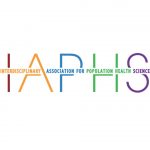 |
RSF Letters of Inquiry (Due 3/11/25)
Apply for the Robert Wood Johnson Foundation Health Policy Scholars Program (3/11/25)
|
The RWJF Health Policy Research Scholars is a leadership development program for full-time doctoral students from historically marginalized backgrounds who can connect how their background, identity, or lived experiences have positioned them to contribute to the goals of the program, including bringing unique and diverse perspectives to their research. In 2025, HPRS is selecting up to 40 doctoral students who are beginning their second year in fall 2025 in a full-time doctoral program and do not expect to graduate before spring/summer 2028.
(read more) |
 |
*New* Heat Measurement Webinar from the Center for Aging, Climate, & Health (3/19/25)
|
The March seminar from the Center for Aging, Climate, & Health (CACHE) will discuss heat measures for aging and demographic research. It will address the properties and pertinence of using mean and extreme temperature measures, as well as using combined indicators of heat (temperature, humidity, radiation, or ventilation) and their adjustments by age. To illustrate these constructs, results and data integration strategies from two demonstration projects will be presented. Learn more and register here.
(read more) |
 |
*New* Sloan Foundation Issues Call for Letters of Inquiry (3/25/25)
*New* Call for Papers: Growing Divergences in Longevity in High-Income Populations – 7th Human Mortality Database Symposium (3/30/25)
|
The Human Mortality Database Project team invites contributions to the 7th HMD Symposium. This year, the Symposium will be dedicated to investigating the main drivers and obstacles to longevity progress in the pre- and post-COVID eras. Contributions from demographers, epidemiologists, public health experts and researchers from related fields conducting analyses based on the cause-of-death series newly integrated into the Human Mortality Database (HMD) are particularly encouraged. The Symposium seeks to address major topics and challenges of substantive research as well as methodological and data issues.
(read more) |
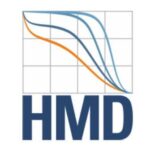 |
*New* CACHE Announces Pre-PAA Mini-Conference (4/9/25)
*New* Applications Open for Panel Study of Income Dynamics (PSID) Summer Workshop (due 4/21/25)
|
This five-day workshop from June 16-20 in Ann Arbor, MI will orient participants to the content and structure of the core PSID interview, its special topics modules, and its supplemental studies, including the Child Development Supplement (CDS), the Transition into Adulthood Supplement (TAS), and the 2013 Rosters and Transfers Module. In addition we will discuss topics including the genomics data collected from children and adults as well as new data files which explain family relationships and demographic characteristics over time.
(read more) |
 |
*New* Registration Open: 2025 Courses of the Barcelona Four Seasons School of Demography
|
The Barcelona Four Seasons School of Demography (Bcn4Seasons School) programme consists of short courses offering the opportunity to acquire essential knowledge of sociodemographic topics and associated techniques that are applicable to social sciences in general. This innovative educational programme is led by the Centre d’Estudis Demogràfics (CED – Centre for Demographic Studies), an internationally renowned sociodemographic research centre addressing population-related issues and affiliated with leading international networks and associations. The outstanding quality of its research work has been acknowledged both nationally and internationally.
(read more) |
 |
Sign up to join the Early Career listserv!
|
We invite early career faculty affiliates to join our new mailing list, csde_earlycareer. Among other things, this is the way to find out info about our quarterly Early Career Affiliate happy hours, and you won't want to miss those! These will be a great way to meet up with other junior scholars in a fun and casual atmosphere over snacks and drinks. Who counts as early career, you ask? Typically we mean folks who are pre-promotion (i.e. assistant professor or equivalent), but we're not strict! Join the list here (Please note - this is for faculty only - we are strict about that. Sorry, all others!)
(read more) |
 |
RSF Call for Proposals from Early-Career Scholars – Causal Research on Criminal Justice System (Due 4/3/25)
|
The Russell Sage Foundation (RSF) and Arnold Ventures recently announced a collaborative call for causal research on the criminal justice system. Criminal justice policies and practices include the work of the police, courts, jails, prisons, probation and parole, and immigration detention. Proposals must include causal research designs that can reliably isolate the treatment effects of a policy, practice, or intervention such as difference-in-differences, regression discontinuity, instrumental variables, and randomized controlled trials.
(read more) |
 |
Updating the Definition of Sexual and Gender Minority Populations in NIH-Supported Research
|
Statistics indicate that as of 2024, nearly eight percent of the U.S. population identifies as LGBT, with much of this growth attributed to increases in LGBT identification among younger generations. In recent years, policies and laws have been enacted in support of LGBTQI+ communities and their well-being. For example, the 21st Century Cures Act included provisions for the NIH Director to encourage efforts to improve research related to the health of sexual and gender minority (SGM) populations, including to increase participation of SGM populations in NIH-supported clinical research and to facilitate the development of methods for conducting SGM research. SGM people were designated as a population with health disparities for NIH research in 2016 by the Director of the National Institute on Minority Health and Health Disparities in consultation with the Director of the Agency for Healthcare Research and Quality. The NIH SGM health research portfolio has steadily grown and diversified since 2015.
However, members of SGM communities still face unique and significant disparities and barriers across domains such as physical, mental, and behavioral health; social and structural determinants of health; and healthcare access and quality. This includes higher SGM group-specific rates of and risks for some chronic health conditions (e.g., arthritis, asthma, cardiovascular disease, diabetes, certain forms of cancer, and HIV/AIDS), depression, anxiety, eating disorders, substance use, smoking, stigma, discrimination, bullying, using preventive health services less frequently, and negative experiences in healthcare settings.
(read more) |
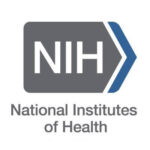 |
CSDE Population Research Planning Grants (PRPGs) (Rolling deadline)
|
Population Research Planning Grants (PRPGs) are designed to provide in-kind support and/or funds of up to $25k* to support a wide array of activity types throughout the development of a research project. As part of our mission to complement rather than duplicate other campus opportunities such as the Population Health Initiative seed grants, we will consider funding things activities such as the use of CSDE services beyond the standard allotments for affiliates.
(read more) |
 |
CSDE Matching Support to Supplement On-campus Funding (Rolling deadline)
|
CSDE Matching Support includes in-kind or monetary support to accompany a submission to other on-campus funding mechanism, such as PHI, EarthLab, or Urban@UW. All projects must have a CSDE affiliate who is UW faculty and is listed as a PI or co-PI, with any number of other collaborators. Note that we require (PRPGs) or strongly suggest (matching funds) contacting either Development Core Director (Steven Goodreau) or CSDE Director (Sara Curran) to discuss possibilities for your specific proposal before submission.
(read more) |
 |
NSF: Proposals Impacting Tribal Nation Resources & Interests
|
As of 5/20/2024, NSF proposals that may impact the resources or interests of a federally recognized Tribal Nation will not be awarded by NSF without prior written approval from the official(s) designated by the relevant Tribal Nation(s).
Proposers must:
- Seek guidance from the potentially impacted Tribal Nation on activities that require review and prior approval from that Tribal Nation’s authorized designee.
- Submit a written request to the relevant Tribal Nation (based on their guidance), for approval to carry out the proposed activity that requires their review and approval.
- Complete the checkbox for “Potential Impacts on Tribal Nations” on the Cover Sheet. Note, lead organizations are responsible for this on collaborative proposals & proposals with subawards considered a single unified project.
- Upload one of the following into "Other supplementary documents" of Research.gov:
- a copy of the written request to the relevant Tribal Nation to carry out any proposed activity/activities that may require prior approval from them
- written confirmation from the Tribal Nation(s) that review and approval is not required
- a copy of relevant Tribal Nation approval
(read more) |
 |
|
|



